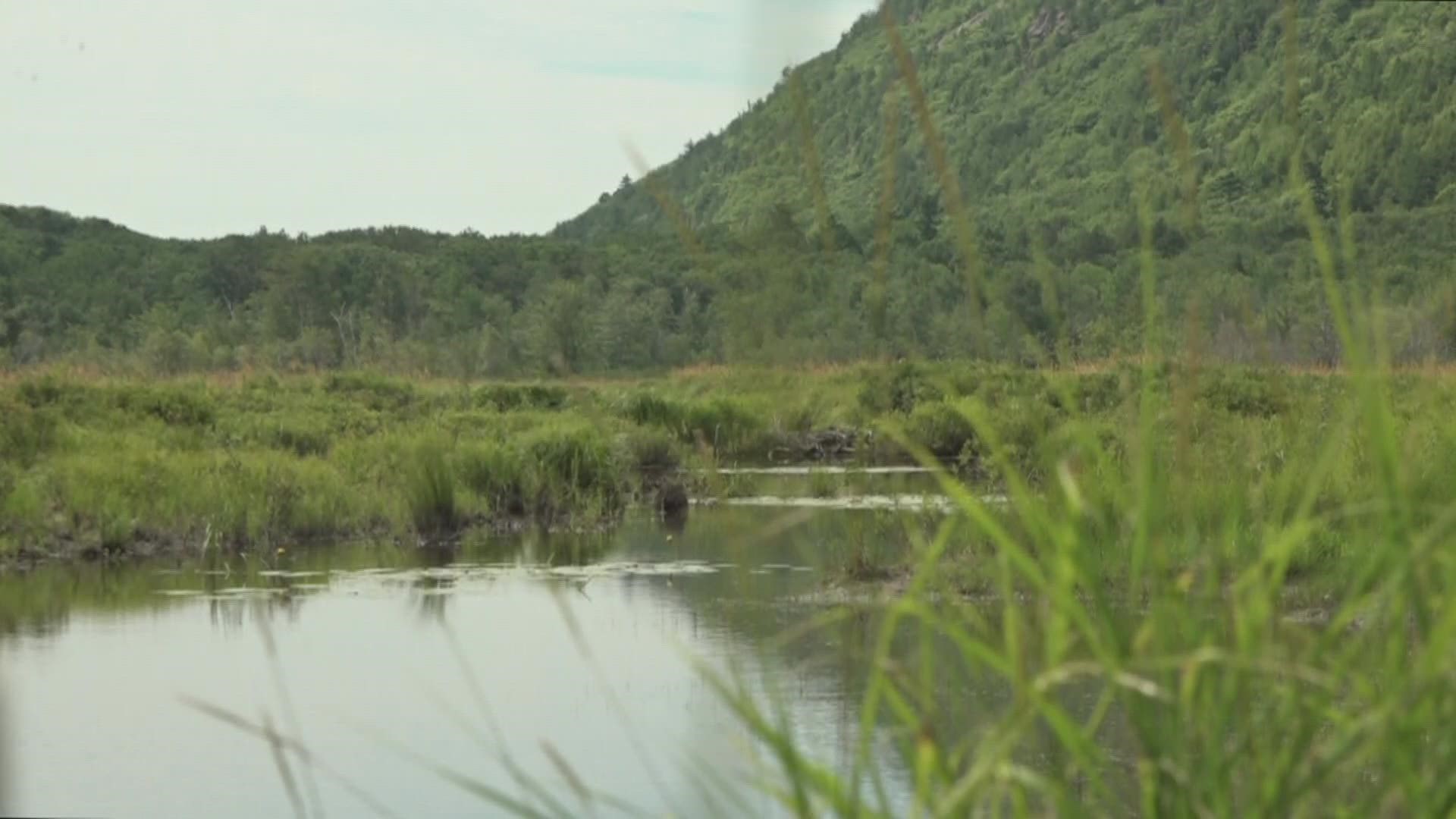ACADIA, Maine — Acadia National Park is using funds from the Bipartisan Infrastructure Law to improve the health and function of the Great Meadow Wetland, while also improving its climate resiliency.
The project will improve flood mitigation, natural water flow, and wildlife passage to create a healthier ecosystem. Part of the project also includes removing invasive plants and planting native plants that are adapted for a future climate.
Stephanie Clement, conservation director at Friends of Acadia, says this is an important step in preserving Acadia's natural ecosystem.
"What we see here today will not be what's here in 40 or 50 years," Clement said.
Climate change on the minds of those who are looking to help prepare Acadia for the future. Acadia's climate focused restoration is leading the way for national parks across the country.
National Park Service Director Chuck Sams says this project will lay a foundation for the entire national parks system.
"We'll start aggregating that data, doing best management practices, and being able to share those best management practices so nobody is starting from square one," Sams said. "This is a great example of climate resiliency and climate adaptation, and bringing back ecosystem function into the wetlands."
Acadia Superintendent Kevin Schneider says having Sams see the work they're doing firsthand is exciting and is setting an example for other national parks.
"We are a leader on many fronts and so to showcase that for the director of the National Park Service has been a real honor," Schneider said.
The Biden administration's Bipartisan Infrastructure Law set aside $1.4 billion to put toward the nation's public lands. This restoration project will cost $500,000.

